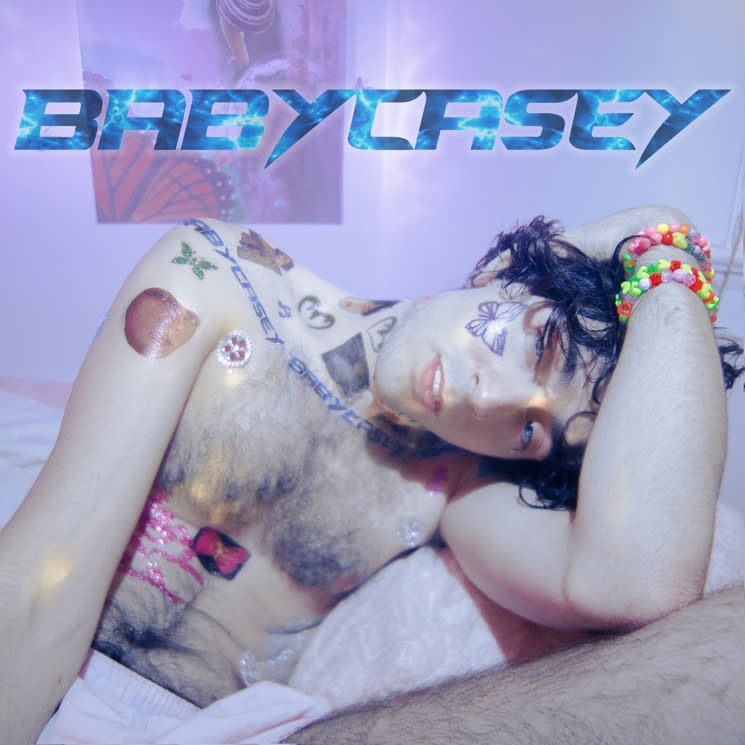Casey MQ's solo debut record, babycasey, drops familiar '90s tropes like a time machine, but with a message as personal and reflective as a bedroom mirror.
The album reflects on Casey MQ's childhood, an era defined by a fascination for boy band culture. But when adolescent innocence faded away to make room for adulthood, it unmasked the culture's aggressive heterenormative standards that had sweltered underneath the glamour. Casey MQ expresses this contrast sonically. His vocals are pitched higher whenever he sings childhood sentiments in songs like "What About Us" and "The First Song I Ever Wrote," which differentiates these thoughts from his falsetto lines throughout the album.
Considering its sound, the record is pop decadence and then some. Much like the cover art of the album, Casey MQ's raw and bare lyrics are liberally adorned and accessorized with sparkling, gaudy pop tropes. But this album soars above and beyond by embodying pop and playing to its strengths. This is markedly different from "experimental pop," where one explores the fringes of the genre by poking at the boundaries with unfamiliar instruments or conventions. Instead, Casey MQ leans into the pop genre — he dives in, splashing listeners with falsetto harmonies, muffled club beats and even the trademark acoustic guitar in "Half Awake." His masterful composition on the synthesizer superglues the samples and lyrics together seamlessly. "What About Us," with its arpeggiated synth, is emotionally cathartic, and "Monsters Without Names" includes deep bass waves that rumble beneath the surface of the melody, ominous yet picturesque.
Casey MQ's babycasey manifests the power of pop. The music's inescapable dazzle tugs against the heartstrings of listeners, then pulls them head first into the turbulent and emotional world of Casey MQ's unapologetic artistry.
(Halocline Trance)The album reflects on Casey MQ's childhood, an era defined by a fascination for boy band culture. But when adolescent innocence faded away to make room for adulthood, it unmasked the culture's aggressive heterenormative standards that had sweltered underneath the glamour. Casey MQ expresses this contrast sonically. His vocals are pitched higher whenever he sings childhood sentiments in songs like "What About Us" and "The First Song I Ever Wrote," which differentiates these thoughts from his falsetto lines throughout the album.
Considering its sound, the record is pop decadence and then some. Much like the cover art of the album, Casey MQ's raw and bare lyrics are liberally adorned and accessorized with sparkling, gaudy pop tropes. But this album soars above and beyond by embodying pop and playing to its strengths. This is markedly different from "experimental pop," where one explores the fringes of the genre by poking at the boundaries with unfamiliar instruments or conventions. Instead, Casey MQ leans into the pop genre — he dives in, splashing listeners with falsetto harmonies, muffled club beats and even the trademark acoustic guitar in "Half Awake." His masterful composition on the synthesizer superglues the samples and lyrics together seamlessly. "What About Us," with its arpeggiated synth, is emotionally cathartic, and "Monsters Without Names" includes deep bass waves that rumble beneath the surface of the melody, ominous yet picturesque.
Casey MQ's babycasey manifests the power of pop. The music's inescapable dazzle tugs against the heartstrings of listeners, then pulls them head first into the turbulent and emotional world of Casey MQ's unapologetic artistry.
